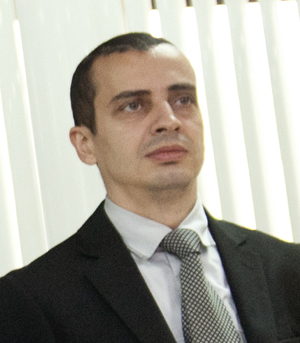This year again Bulgaria joined the European Researchers’ Night. Apart from Sofia it was held in Plovdiv, Varna, Burgas, Rousse and Stara Zagora and in further 300 European cities. In Bulgaria the program of events was organized by the British Council. Its key objective was to show and explain various spheres and capabilities of science and support those willing to become researchers or explorers. The Bulgarian Academy of Sciences and universities from the country joined the Night too.
Square 500 National Art Gallery played host to a few lectures and demonstrations. One of the presentations that enjoyed great interest from audiences was of Deputy Sofia Mayor for Culture Dr Todor Chobanov, an archeologist by education. He explored some of Sofia’s archeological secrets.
 “Outside St. Sophia Church lies the most important tomb found by archeologists in our city: the only local tomb with an inscription mentioning a real person. It is the tomb of Honorius, who was a bishop. When he died the locals showed their respect for him by building this remarkable monument. In archeological terms the monument is of great importance because the inscription displays a mixture of Greek and Latin. This clearly suggests that in 5-6 c. AD the two languages mixed in the territory of the city.”
“Outside St. Sophia Church lies the most important tomb found by archeologists in our city: the only local tomb with an inscription mentioning a real person. It is the tomb of Honorius, who was a bishop. When he died the locals showed their respect for him by building this remarkable monument. In archeological terms the monument is of great importance because the inscription displays a mixture of Greek and Latin. This clearly suggests that in 5-6 c. AD the two languages mixed in the territory of the city.”
In his presentation Dr Chobanov told the audience about sites in the city where archeological work is underway. Next year excavations are expected to round off of the Western Gate of ancient Serdica. Digs opened there in the 1970s revealing the two towers of the gate as well as sections from the main street. Besides, mosaic segments have been found believed to have been part of a huge basilica built on commission of Emperor Constantine the Great. It is believed that it played host to the celebrated Council of Serdica in 343. To be legitimate that Council had to report attendance of bishops from across the Roman Empire who were at least 400, not counting their delegations. The only structure found so far able to accommodate such an audience is that basilica.
Here is another intriguing detail: the northwestern part of present-day Sofia’s center hides the center of old Serdica aged more than 3000 years.
The Forum of Serdica close to Saint Nedelya square is the new site where work is ongoing. It is believed that the municipal council was found under the present-day Balkan Hotel. What excavations have revealed is a huge palace with a treasure at its foundations. It consists of jubilee coins in the main.
In its millennial history Sofia has always been a spiritual and administrative center of the territory that surrounds it. This explains the incessant discoveries from the Thracian and Roman eras. It is rather sad that urban planning solutions during communism and the new representative buildings erected at that time such as the Council of Ministers, the Presidency, the Central Department Store and Balkan Hotel prevent full-scale exploration of Sofia’s rich archeological heritage.
English version: Daniela Konstantinova
The newest exhibition at the National Museum of Military History in Sofia, 'War and the Creatives: A Journey Through Darkness' opens today, offering free entry as a gesture to those who were unable to visit during the recent renovations. Rather than..
A 5,000-year-long history lies hidden in the ruins of the medieval fortress “Ryahovets” near the town of Gorna Oryahovitsa where active excavations began ten years ago. On this occasion, on November 17, the Historical Museum in Gorna Oryahovitsa..
Just days ago, archaeologists uncovered part of the complex underground infrastructure that once served the Roman baths of Ratiaria - one of the most important ancient cities in Bulgaria’s northwest. Founded in the 1st century in the area of..

+359 2 9336 661
